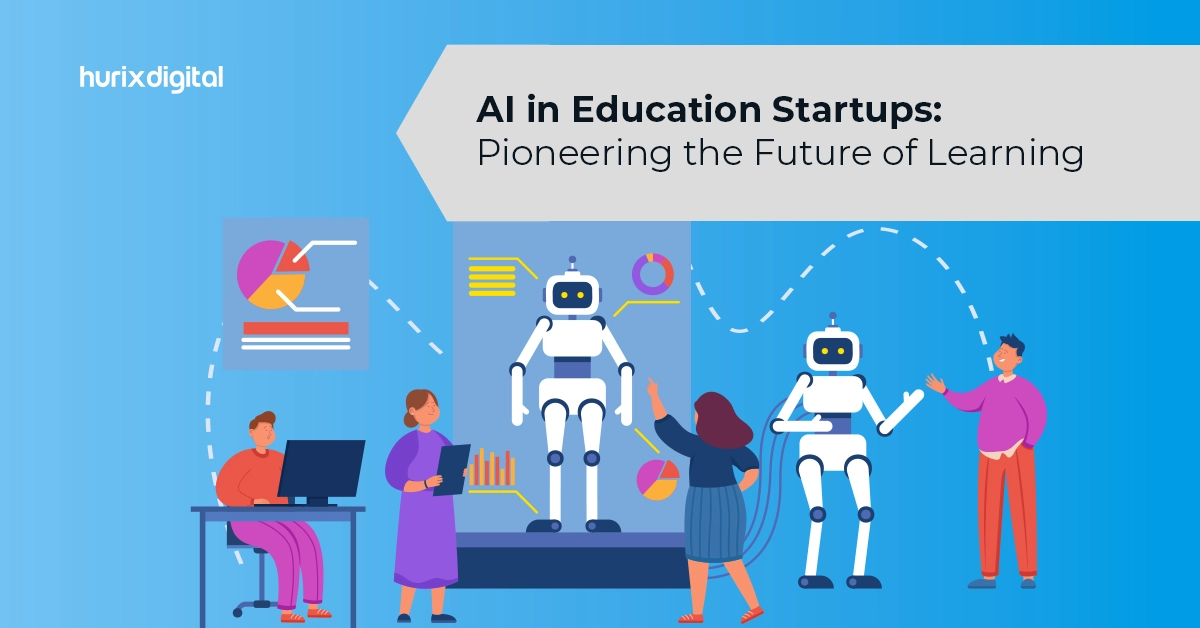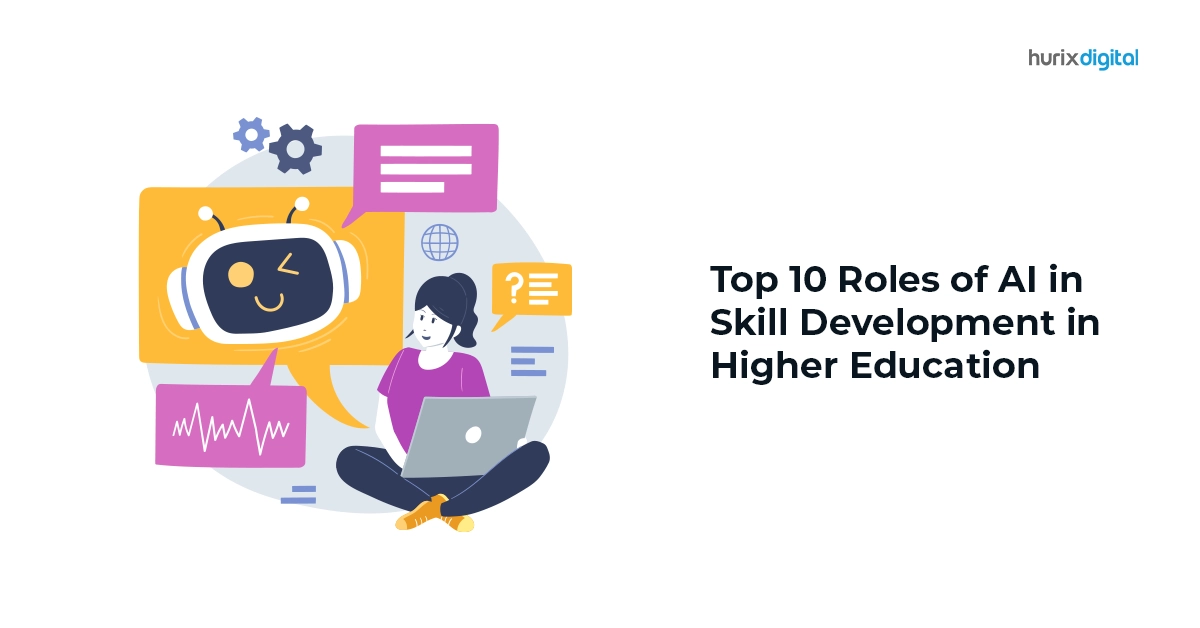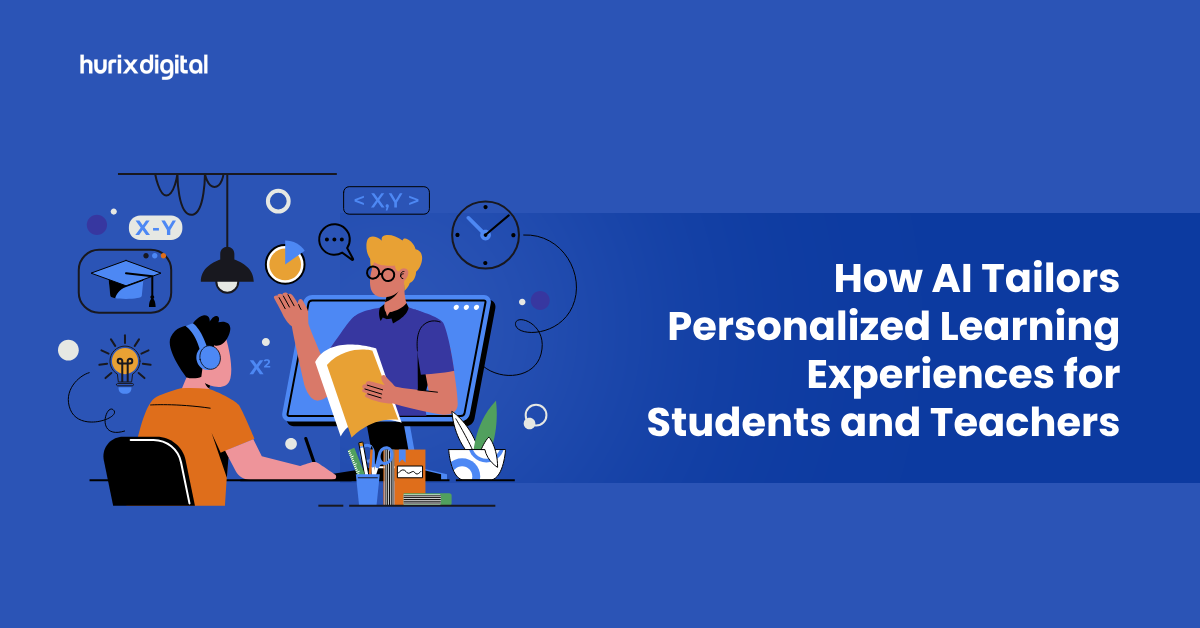Summary
This blog explores how AI is revolutionizing education and how EdTech startups can leverage its growth potential. The future holds promise for further advancements in areas like NLP, deep learning, and integration with other technologies. It emphasizes AI's transformative potential for EdTech startups and encourages responsible utilization to personalize learning and achieve equity in education
The global AI in education market is expected to reach a staggering $12.8 billion by 2028, showcasing its immense potential. The education landscape is undergoing a radical transformation, driven by the ever-evolving power of artificial intelligence (AI).
EdTech startups are at the forefront of this revolution, harnessing AI’s potential to create personalized, engaging, and effective learning experiences for students of all ages and backgrounds.
We dive deep into the exciting world of AI in Education, analyzing successful AI strategies, and showcasing how they can propel your edtech startup towards sustainable growth.
Table of Contents:
- Uncovering Key AI Strategies for EdTech Startups
- AI as a Catalyst: The Role of AI in EdTech Startup Growth
- Real-World Examples: AI Revolutionizing the EdTech Landscape
- Looking Ahead: The Future of AI in Education
- Conclusion
Uncovering Key AI Strategies for EdTech Startups
Imagine an education system that adapts to each student’s unique needs, keeps them engaged, and unlocks their full potential. EdTech startups are harnessing the power of Artificial Intelligence (AI) to make this vision a reality.
EdTech startups have a vast arsenal of AI-powered tools at their disposal to personalize and optimize the learning journey. Let’s explore key AI strategies that can propel your startup to the forefront of personalized learning and future-proof your business.
1. Adaptive Learning Platforms
These platforms utilize machine learning to tailor the learning content and pace to each student’s individual needs and strengths. By analyzing data on performance, preferences, and learning styles, they create dynamic curriculum pathways that ensure mastery and engagement.
2. Intelligent Tutoring Systems (ITS)
These AI-powered virtual tutors provide personalized feedback and guidance based on a student’s understanding. They can answer questions, identify knowledge gaps, and offer additional resources, acting as a supportive and intelligent study companion.
3. Automated Grading and Feedback
AI can take over the burden of tedious tasks like grading essays and multiple-choice tests. This frees up valuable teacher time for personalized interaction and in-depth discussions, while also delivering immediate and consistent feedback to students.
4. Gamification and Learning Through Play
AI can power engaging and interactive learning experiences through game-based elements. These experiences can enhance motivation, reinforce concepts, and provide real-time feedback in a fun and immersive way.
5. Language Learning Tools
AI-powered language learning platforms utilize speech recognition and natural language processing to offer personalized pronunciation feedback, conversation practice, and adaptive vocabulary learning activities.
Also Read: Top 10 Roles of AI in Skill Development in Higher Education
AI as a Catalyst: The Role of AI in EdTech Startup Growth
In today’s competitive EdTech landscape, standing out is crucial. Integrating AI into your offerings isn’t just about enhancing learning; it’s a powerful growth engine. Beyond personalization and engagement, AI offers crucial advantages that can propel EdTech startups toward success.
Discover how AI can supercharge your user engagement, attract investors, and fuel your startup’s success:
- Scalability: AI-powered education for startups can cater to a large number of users without compromising effectiveness. This allows startups to reach a wider audience and scale their impact with relative ease.
- Data-Driven Insights: AI generates valuable data on student performance, learning patterns, and engagement levels. These insights allow startups to continuously improve their products and tailor them to specific user needs, ensuring a superior learning experience.
- Cost-Effectiveness: AI can automate tasks currently handled by teachers, leading to reduced operational costs for startups. This opens up resources for further development and expansion.
- Competitive Advantage: Implementing innovative AI solutions can set EdTech startups apart from the competition, attracting investors, partners, and a wider user base.
Real-World Examples: AI Revolutionizing the EdTech Landscape
AI is not just a futuristic dream; it’s already transforming education. See how innovative EdTech startups are leveraging AI to personalize learning, create engaging experiences, and achieve remarkable results. Get inspired by these real-world examples and learn how your startup can join the AI revolution.
Leading EdTech startups are already putting these strategies into practice, with impressive results:
- Duolingo: This popular language learning app uses AI to provide personalized practice sessions, feedback on pronunciation, and adaptive learning pathways. The platform boasts over 500 million users worldwide.
- Knewton: This adaptive learning platform leverages AI to create individualized learning paths for students in math, science, and reading. Studies by Knewton showed that AI integration achieved up to 62% higher learning gain than traditional methods.
- DreamBox: This AI-powered math platform personalizes learning based on each student’s strengths and weaknesses with over 2000 lessons.
Looking Ahead: The Future of AI in Education
The future of AI in education is bright and brimming with possibilities. 67% of educators believe AI will play a significant role in improving student performance.
- Natural Language Processing (NLP) personalizes feedback and assessments by understanding student language, providing tailored responses, and identifying areas for improvement.
- Deep learning will create more sophisticated adaptive learning by analyzing vast amounts of data to predict individual needs and deliver highly customized learning paths.
- AI-powered tools will support social-emotional learning and mental health by analyzing student communication, identifying potential issues, and offering personalized resources and support.
- Wearables and brain-computer interfaces can now be integrated with AI to provide real-time insights into student engagement, emotional state, and cognitive performance, enabling personalized interventions.
- More advanced AI-powered tutors will be able to provide more nuanced feedback, answer complex questions, and even guide students through open-ended projects.
- Integration of AI with other technologies will seamlessly integrate with VR/AR, gamification, and other emerging technologies to create immersive and engaging learning experiences.
- Focus on social-emotional learning will be used to personalize social-emotional learning experiences, helping students develop essential life skills.
- Closing the equity gap is essential. AI-powered tools can be used to personalize learning for disadvantaged students, helping to close the equity gap in education.
Also Read: Top 10 AI Trends Reshaping the World of Education in 2024
Conclusion
AI presents a transformative opportunity for EdTech startups to redefine learning and unlock its full potential. By implementing the right strategies and embracing innovation, EdTech startups can empower learners, revolutionize education, and achieve remarkable growth.
AI is a powerful tool that can revolutionize the way we learn and teach. By harnessing the power of AI strategically and responsibly, ed-tech startups can play a crucial role in shaping a more personalized, engaging, and equitable future for education.
Hurix Digital provides you with digital solutions tailored to your organization’s unique needs. Discover how our AI solutions can help you revolutionize education and unlock your full potential by contacting our team today!








